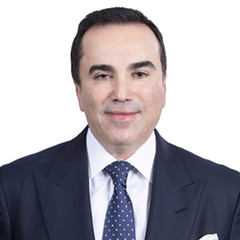Workers’ Compensation Hearings and Appeals
When an injured worker encounters problems when seeking workers’ compensation benefits, he or she may need to schedule and attend a hearing and/or file an appeal to seek a favorable result. There are specific steps that must be taken under the California workers’ compensation system to address a disputed or denied claim; the attorneys at Pacific Attorney Group know how to navigate these proceedings to protect our clients’ best interests. We handle workers’ comp hearings and appeals in Southern California, applying more than three-and-a-half decades of experience to each worker we represent.
The process of requesting a hearing or filing an appeal will begin with the denial of a workers’ compensation claim. This may occur because a claims adjuster has come to the decision that a worker’s injury should not be covered because it was not work-related. A worker does not have to simply accept a denied claim and try to seek medical and financial support elsewhere. Injured workers have the right to challenge denied claims by filing a case with one of the 24 Division of Workers’ Compensation (DWC) field offices located across the state. These field offices serve as courts where hearings and trials are held to resolve workers’ compensation disputes.
Hearings, Appeals and Trials: Disputing a Denied Claim
You can learn more about the three key steps in contesting a denied workers’ compensation claim by reviewing the brief descriptions below, or click on a subject to be redirected to a page dedicated to that specific topic.
Mandatory Settlement Conference
A mandatory settlement conference (MSC) is a hearing held at a DWC field office to help an injured worker and claims administrator (or their attorney) come to an agreement regarding a disputed claim. A workers’ compensation law judge will discuss the case with both parties and try to facilitate a settlement.
Workers’ Compensation Trial
When a settlement cannot be reached through a mandatory settlement conference, the case will go to trial. These trials are presided over by workers’ compensation law judges without juries. If your case goes to trial, this will be held before a different judge, other than the one who handled your hearing. Upon hearing all evidence and testimony on the matter, the judge will make a decision and inform both parties in writing in 30-90 days.
Workers’ Compensation Appeal
If a worker does not agree with the outcome of a workers’ compensation trial, he or she has the right to file an appeal. This is accomplished by filing a Petition for Reconsideration with the Workers’ Compensation Appeals Board (WCAB). The WCAB has the authority to review the case and either uphold or reverse the judge’s decision, or send the case back for another trial.
Working with a Lawyer
Working with a lawyer who is experienced in handling workers’ compensation hearings, trials and appeals can make all the difference as you seek a fair outcome to your claim. It can be difficult to know exactly what information is needed and how to present your case to a workers’ compensation law judge at your hearing or trial. A lawyer will understand how to prepare and present a compelling case that gives you the best opportunity at having your claim approved – even if it was initially denied.
Do not take chances with your financial stability and your ability to rebuild and recover in the wake of a workplace accident. Contact a workers’ compensation lawyer at our firm for a free review of your case.

